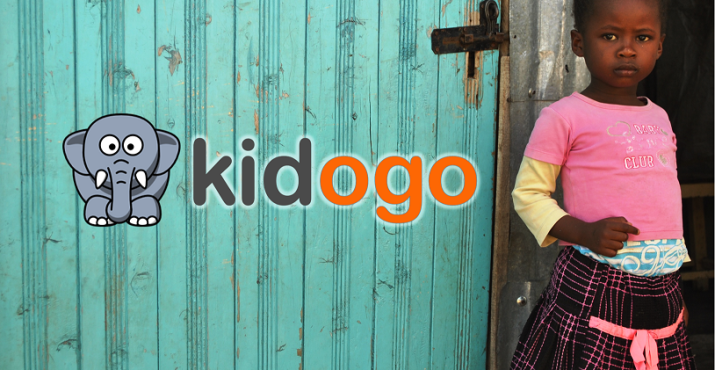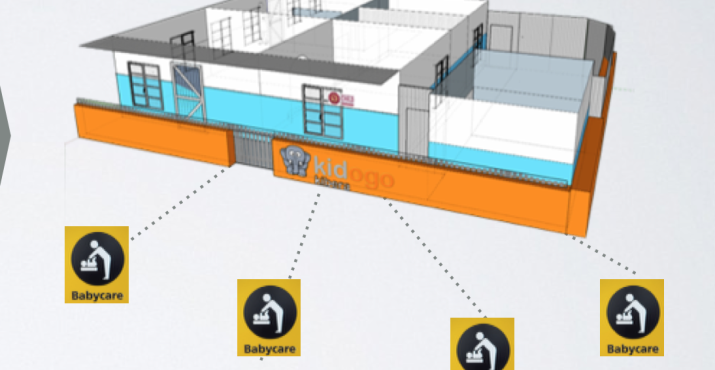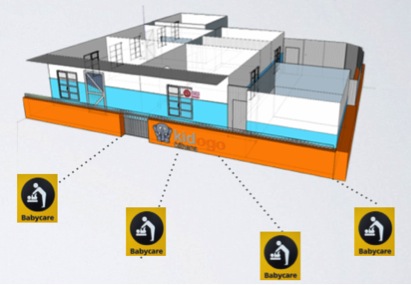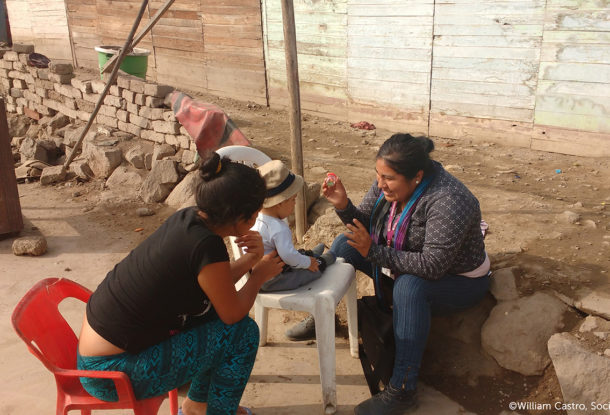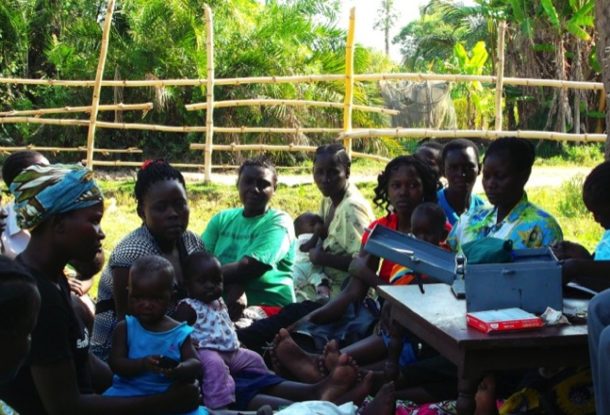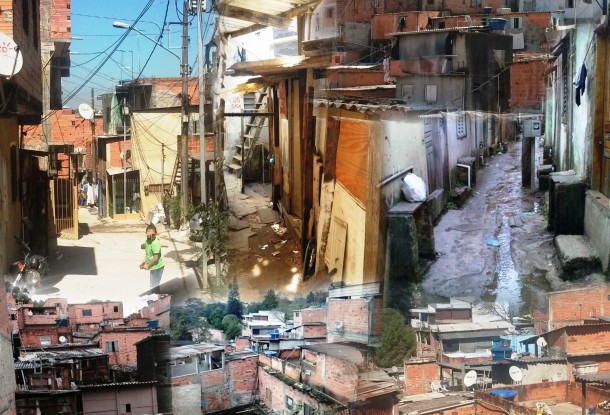 In Sub-Saharan Africa, only 12% of children have access to early childhood programs. [1] For children living in infrastructure-poor slums facing extreme poverty, access to early childhood care is virtually non-existent. Some enterprising local mothers (dubbed “mamapreneurs”) offer informal, home-based daycare services for a nominal fee in local “baby-care centers”. This represents an improvement for many families, where the alternative is to leave their children at home alone, or with an older sibling who is pulled out of school. However, the physical environment of these informal baby-care centers is often poor, with no lighting, limited ventilation, indoor air pollution from cooking, and facilities that are often unclean and unsafe. In addition, given the lack of training and awareness about the importance of ECD, the caregivers often leave the children on the hard ground for long periods of time without appropriate attention or stimulation.
In Sub-Saharan Africa, only 12% of children have access to early childhood programs. [1] For children living in infrastructure-poor slums facing extreme poverty, access to early childhood care is virtually non-existent. Some enterprising local mothers (dubbed “mamapreneurs”) offer informal, home-based daycare services for a nominal fee in local “baby-care centers”. This represents an improvement for many families, where the alternative is to leave their children at home alone, or with an older sibling who is pulled out of school. However, the physical environment of these informal baby-care centers is often poor, with no lighting, limited ventilation, indoor air pollution from cooking, and facilities that are often unclean and unsafe. In addition, given the lack of training and awareness about the importance of ECD, the caregivers often leave the children on the hard ground for long periods of time without appropriate attention or stimulation.
Kidogo is a social enterprise that seeks to transform the trajectory of young children living in East Africa’s urban slums by providing high-quality, affordable, early childhood care and education through an innovative “hub and spoke” model.
Kidogo builds and operates best-practice community ECD “hubs,” which provide young children (6 months to 6 years) with a holistic ECD intervention including a safe & stimulating physical environment, nutritious meals, a play-based curriculum and well-trained, supportive caregivers. In addition, Kidogo partners with local baby-care centers (“spokes”) through a micro-franchising model, providing training, materials & ongoing support to improve the quality of community-based childcare.
 In Sub-Saharan Africa, only 12% of children have access to early childhood programs. [1] For children living in infrastructure-poor slums facing extreme poverty, access to early childhood care is virtually non-existent. Some enterprising local mothers (dubbed “mamapreneurs”) offer informal, home-based daycare services for a nominal fee in local “baby-care centers”. This represents an improvement for many families, where the alternative is to leave their children at home alone, or with an older sibling who is pulled out of school. However, the physical environment of these informal baby-care centers is often poor, with no lighting, limited ventilation, indoor air pollution from cooking, and facilities that are often unclean and unsafe. In addition, given the lack of training and awareness about the importance of ECD, the caregivers often leave the children on the hard ground for long periods of time without appropriate attention or stimulation.
In Sub-Saharan Africa, only 12% of children have access to early childhood programs. [1] For children living in infrastructure-poor slums facing extreme poverty, access to early childhood care is virtually non-existent. Some enterprising local mothers (dubbed “mamapreneurs”) offer informal, home-based daycare services for a nominal fee in local “baby-care centers”. This represents an improvement for many families, where the alternative is to leave their children at home alone, or with an older sibling who is pulled out of school. However, the physical environment of these informal baby-care centers is often poor, with no lighting, limited ventilation, indoor air pollution from cooking, and facilities that are often unclean and unsafe. In addition, given the lack of training and awareness about the importance of ECD, the caregivers often leave the children on the hard ground for long periods of time without appropriate attention or stimulation.